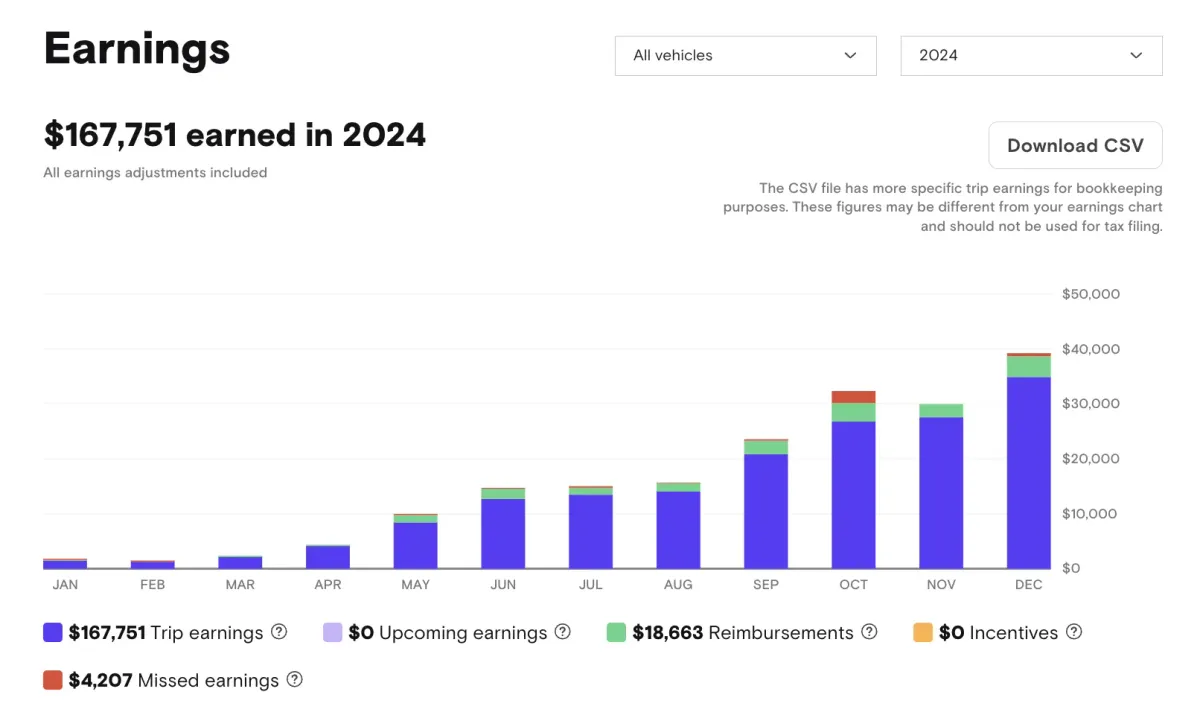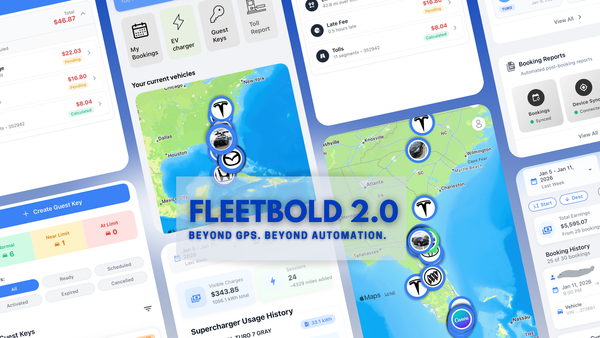Turo Isn’t a “Get Rich Quick” Scheme _ The Truth About Profitability
This blog breaks down the reality of building a profitable Turo business, explaining why it’s not a get rich quick scheme, and comparing Turo's profit potential to traditional car rental companies.

Introduction: The Reality of Turo Business
In today's fast paced digital world, many people are actively searching for ways to earn money quickly. Social media is filled with influencers boasting about their ability to make substantial incomes in record time through various methods like dropshipping, crypto trading, Airbnb, and, yes—Turo. It all sounds so easy, right? Just buy a car, list it on Turo, and boom—instant money.
But, let’s get one thing straight: Turo isn’t a get rich quick scheme. It’s a real business that requires strategic planning, careful decisions, and long term patience. Much like running any business, building a profitable Turo operation takes time and consistency. This blog will dive deep into the reality of Turo, dispel the myth of quick money, and provide you with key insights to succeed in this business.
We’ll compare Turo’s profit potential to that of traditional car rental companies, show you why slow and steady growth is key, and explore how you can create a sustainable income with Turo—without falling for the easy money illusion.
The “Get Rich Quick” Myth in Business
There’s a widespread belief in today’s world that anyone can make money easily, fast, and with little effort. While this sounds enticing, it’s a myth that many aspiring entrepreneurs fall for. If you look at the success stories of most industries, you’ll quickly realize that they didn’t become successful overnight. Building a profitable business takes time, patience, and a lot of effort. Let’s take a closer look at a few popular industries where the “get rich quick” myth often leads to disappointment:
1. Dropshipping: The Illusion of Instant E commerce Wealth
Dropshipping is one of the most commonly touted “get rich quick” business models. People dive into e commerce with dreams of making six figures in a short period. However, many find that the reality is much harder. The market is flooded with competition, profit margins are slim, and success requires constant attention to customer service, inventory management, and digital marketing. Most people don’t realize that it takes months or even years to build a thriving online store.
2. Real Estate: Not Just Buying and Renting
Real estate is often seen as a fast track to wealth. While it’s true that rental properties can be profitable, they require significant investment and come with hidden costs. Maintenance, vacancies, taxes, and market fluctuations are all factors that can quickly eat into your profits. Many people overlook the ongoing costs of managing properties and assume that they’ll get rich simply by owning a few rental units.
3. Stocks & Crypto: Making Fast Money or Building Wealth?
Some people have gotten lucky with crypto or stock investments, seeing massive gains in a short period. However, this is rare and not sustainable for most. Building wealth through the stock market or crypto takes time, research, and strategic long term investing. Most successful investors build their portfolios over decades, making educated decisions and diversifying their investments.
4. Turo & Car Rentals: The Same Myth
It’s easy to think that by simply buying a car and listing it on Turo, you’ll start making thousands of dollars in passive income every month. However, without the proper planning, pricing strategies, and financial discipline, profits can slip away as quickly as they arrive. Turo isn’t a passive income source that just generates money while you sit back and relax. It’s a business, and like any business, it requires effort and strategy.
How Profitable Is Turo Compared to Traditional Car Rental Companies?
Now that we’ve debunked the myth of easy money, let’s dive into the question of how profitable Turo really is. When compared to major car rental companies like Hertz, Enterprise, and Avis Budget Group, how does Turo stack up?
Traditional Car Rental Company Profit Margins (2023)
The big rental companies are multi billion dollar corporations, but their profit margins are surprisingly slim. After accounting for expenses like vehicle depreciation, insurance, maintenance, and operational costs, the profit margins of these giants are much lower than one might expect.
Car Rental Company Profit Margins (2023):
- Hertz Global Holdings – 1.9% net profit margin
- Avis Budget Group – 4.2% net profit margin
- Enterprise Holdings (Private) – Estimated 3-5% profit margin
Source: Public financial reports & market data
How Does Turo Compare?
In contrast to traditional rental companies, Turo hosts can potentially see much higher profit margins. While the industry giants struggle with their massive overhead costs, individual Turo hosts have the opportunity to achieve much better returns due to a more flexible business model and fewer operational costs.
- Turo hosts who manage their business effectively can achieve margins of 10-30%.
- There’s no massive corporate overhead like in traditional rental companies, which makes Turo a potentially more profitable option for individuals.
- The key difference is that Turo’s success depends entirely on individual strategies, smart car choices, and financial discipline.
Why Turo Can Be Profitable (But Requires Strategy)
Turo can indeed be a profitable business, but like any business, it requires strategic planning. Here’s how you can make sure that your Turo venture remains profitable:
1. Choosing the Right Car
The first and most important step is choosing the right car to list on Turo. Not all vehicles perform well on the platform. You need to pick a car that has high demand, low maintenance costs, and good resale value.
Best Cars for Turo Profitability:
- Tesla Model 3: With low maintenance costs and high demand, Tesla is a popular choice for renters looking for eco friendly options.
- Toyota Prius: Known for its fuel efficiency and low depreciation, this is a great option for budget conscious renters.
- Jeep Wrangler: A highly popular choice for adventure and off road rentals. Its rugged appeal makes it a top performer in many regions.
The key is to understand your market and invest in cars that align with what renters are looking for in your area.
2. Managing Expenses Like a Business Owner
Many people fail in Turo because they don’t properly track their operational costs. The key to profitability is managing your expenses and maximizing your earnings. Some important costs to consider include:
- Depreciation: Cars lose value over time, so it’s important to choose cars that hold their value.
- Maintenance: High end cars typically have higher repair costs, which can eat into profits.
- Insurance: Make sure you factor in the costs of insurance to ensure you're covered properly.
By managing these expenses, you’ll be better prepared to maintain a profitable business in the long run.
3. Optimizing Pricing and Location
Pricing and location play a crucial role in the success of your Turo business. Instead of setting a price and leaving it, top performing hosts constantly monitor their local market and adjust their prices based on demand.
Pricing Strategy Tips:
- Seasonal Adjustments: During peak seasons, increase your rates slightly, but during off seasons, reduce your prices to remain competitive.
- Location: Focus on high demand areas like airports, tourist attractions, and business districts where travelers are looking for convenient rental options.
Final Reality Check: Success Takes Time
Now that you know how to make Turo work for you, let’s talk about patience. Most successful businesses didn’t start profitable on day one. Major industry players like Uber, Airbnb, and Tesla all took years to become successful.
- Uber lost $9.1 billion in 2022 before finally becoming profitable.
- Airbnb wasn’t profitable for over a decade.
- Tesla faced bankruptcy multiple times before breaking through in the electric vehicle market.
Lesson: Building a successful business requires persistence, long term thinking, and a lot of smart decisions. Whether you’re in Turo or any other industry, success doesn’t happen overnight.
Conclusion: The Smart Approach to Turo Success
Turo is a legitimate business opportunity. But like any real business, success comes from treating it seriously, planning strategically, and managing your resources wisely.
Key Takeaways:
- Turo requires strategic planning—it's not a quick money maker.
- Traditional rental companies have low profit margins, while Turo hosts can achieve much higher profits with proper management.
- Success on Turo comes from choosing the right cars, controlling expenses, and optimizing your pricing.
If you approach Turo with a business mindset and focus on long term growth, you can build a profitable and sustainable business. So, instead of looking for “easy money,” commit to working smarter, and success will follow.
FAQs
Q: Is Turo really profitable?
A: Yes, Turo can be highly profitable, but success depends on smart car choices, managing expenses, and optimizing pricing. With proper planning, you can achieve strong margins.
Q: How can I maximize my profits on Turo?
A: The key to maximizing profits is choosing the right cars, keeping expenses low, and optimizing your pricing. Consider local demand and seasonality when setting rates.
Q: How much should I expect to make on Turo?
A: Turo hosts who manage their expenses and prices effectively can expect margins of 10-30%, but this varies based on the market and car choices.
Q: How do I choose the best car for Turo?
A: The best cars for Turo are those with low maintenance costs, high demand, and strong resale value. Cars like the Tesla Model 3, Toyota Prius, and Jeep Wrangler tend to perform well.
Q: Can Turo replace a full time job?
A: While Turo can be a great source of income, it requires significant time and effort to run successfully. It can be a full time business, but it’s not a passive income stream.





